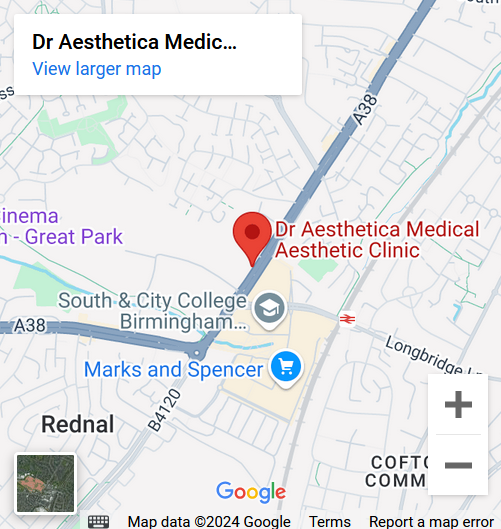Tear trough fillers are increasingly recognised as an effective solution for rejuvenating the under-eye area, effectively addressing concerns such as hollows, dark circles, and signs of fatigue. This non-surgical treatment employs hyaluronic acid to restore volume and create a refreshed appearance, making it an attractive option for numerous individuals.
It is essential to understand the benefits, safety precautions, and the potential for combining this treatment with rhinoplasty. This comprehensive guide to tear trough fillers aims to provide all the necessary information to achieve optimal results.
Key Takeaways:
Understanding Tear Trough Fillers

Understanding tear trough fillers is essential for individuals seeking to enhance their appearance by addressing concerns such as under-eye hollows, dark circles, and signs of fatigue.
This non-surgical treatment employs hyaluronic acid-based dermal fillers to restore volume and smooth the under-eye area, resulting in a revitalised and youthful appearance.
As facial rejuvenation techniques continue to gain popularity, these fillers have emerged as a preferred option for those desiring aesthetic improvements without the complexities associated with surgical procedures.
By adopting a customised approach, patients can achieve optimal results and heightened satisfaction, ensuring a natural enhancement that harmonises with their distinct facial features.
What are Tear Trough Fillers?
Tear trough fillers are injectable dermal fillers composed primarily of hyaluronic acid, specifically formulated to address hollows under the eyes and reduce the appearance of dark circles.
These fillers function by restoring lost volume and providing hydration to the delicate skin surrounding the eyes. Hyaluronic acid, a naturally occurring substance within the body, is instrumental in attracting moisture, thereby contributing to a more youthful and rejuvenated appearance.
The procedure entails the precise injection of the filler using a fine needle, often accompanied by a local anaesthetic to alleviate discomfort. As the filler is administered, the immediate effects become apparent, smoothing the contours and diminishing shadows, resulting in a more refreshed and vibrant look that can significantly enhance overall facial aesthetics.
Benefits of Tear Trough Filler Treatments
The benefits of tear trough filler treatments are numerous, providing a non-surgical solution for individuals aiming to rejuvenate their appearance while achieving higher levels of patient satisfaction through effective aesthetic transformation.
By addressing under-eye hollows, these fillers assist in restoring a youthful contour, effectively softening the lines that contribute to an aged appearance. They can significantly diminish the visibility of dark circles, which often arise from thinning skin or fat loss in the area.
This targeted enhancement not only brightens the eyes but also fosters a refreshed and alert facial demeanour. The procedure is typically swift, often taking less than an hour, with minimal to no downtime, allowing individuals to promptly resume their daily activities.
Such convenience, coupled with the evident results, renders this treatment particularly attractive, enhancing the overall experience for those pursuing facial rejuvenation.
Safety of Tear Trough Fillers

Ensuring the safety of tear trough fillers is of utmost importance for both practitioners and patients.
The procedure entails specific risks that must be meticulously managed to uphold patient safety and achieve optimal outcomes.
Precautions and Risks
When considering tear trough fillers, it is crucial to be aware of the potential risks associated with the procedure, which may include bruising, swelling, vascular occlusion, and, in rare instances, tissue necrosis.
These risks stem from the delicate nature of the treatment area, which is highly vascular and prone to sensitivity. To mitigate these concerns, individuals should seek a qualified practitioner who conducts comprehensive consultations to assess their suitability for the procedure. A thorough discussion regarding medical history, allergies, and any prior cosmetic treatments can significantly reduce the likelihood of complications.
The application of ice packs and arnica is often recommended both before and after the treatment to alleviate swelling or bruising. Gaining an understanding of the implications of filler placement and the significance of technique can give the power to patients to make informed decisions regarding their treatment options.
Choosing a Qualified Practitioner
Selecting a qualified practitioner is essential for ensuring patient safety during tear trough filler treatments, as they possess the requisite expertise and experience necessary for achieving optimal outcomes.
A skilled injector not only comprehends facial anatomy but also understands the subtle nuances that can enhance natural beauty while minimising associated risks. When considering tear trough fillers, it is imperative to seek an individual with appropriate medical credentials, specialised training in aesthetic procedures, and a portfolio that demonstrates their previous work.
Engaging in a comprehensive consultation allows patients to articulate their goals and concerns, fostering a collaborative environment. An experienced professional will offer personalised recommendations, ensuring that each treatment aligns with the unique characteristics of the patient, thereby significantly enhancing overall satisfaction and results.
Combining Tear Trough Fillers with Rhinoplasty

The combination of tear trough fillers and rhinoplasty can greatly enhance the overall aesthetic transformation of a patient’s facial appearance by simultaneously addressing multiple concerns, such as under-eye hollows and the shape of the nose.
Timing and Considerations
Timing is a critical factor when considering the combination of tear trough fillers with rhinoplasty, as specific intervals between treatments can significantly influence recovery and overall results.
It is essential to understand how these procedures interact to achieve the desired aesthetic outcome. Typically, the recovery period for rhinoplasty can extend from one week to several months, depending on individual healing rates and the extent of the surgery. In contrast, the swelling associated with tear trough fillers may subside within a few days.
If both treatments are performed simultaneously or within a short timeframe, one procedure may impede the healing of the other, potentially resulting in suboptimal outcomes.
Consequently, a comprehensive consultation with a qualified practitioner is imperative. This discussion should encompass personalised timelines, expectations, and the ways in which each procedure can complement the other, thereby ensuring a smoother recovery and an enhanced final appearance.
Results and Benefits
The combination of tear trough fillers with rhinoplasty can yield significant advantages, resulting in enhanced patient satisfaction and a more harmonious facial appearance.
When these two procedures are thoughtfully integrated, individuals frequently experience a rejuvenated look that addresses both structural and volumetric concerns.
The augmentation of the nose through rhinoplasty can effectively balance facial features, while tear trough fillers serve to alleviate signs of fatigue, such as dark circles and hollowness under the eyes.
Numerous patients have reported transformative experiences, highlighting a renewed sense of confidence and youthfulness following their treatment. For example, one patient noted that her revised profile not only altered her appearance but also revitalised her self-esteem, making her feel more at ease in social situations.
Such testimonials emphasise the remarkable synergy between these treatments, illustrating how they collaboratively enhance an individual's overall aesthetic appeal.
Aftercare and Recovery

Aftercare and the recovery process play a vital role in achieving optimal results following tear trough filler treatments.
Implementing appropriate precautions can reduce bruising and swelling, whilst also facilitating an effective healing process.
What to Expect During Recovery
During the recovery phase following the administration of tear trough fillers, patients can anticipate some degree of bruising and swelling, which are normal physiological responses as the healing process commences.
These symptoms typically manifest within the first few days and may gradually diminish over the subsequent week, with most individuals experiencing a significant reduction in swelling and bruising after approximately 7 to 10 days.
To effectively manage these symptoms, it is advisable to apply ice packs intermittently and maintain an elevated head position to minimise discomfort.
It is essential for patients to adhere strictly to the post-treatment care instructions provided by their healthcare provider, as this not only facilitates a smoother recovery but also enhances the overall outcomes of the procedure, thereby helping patients achieve the refreshed and rejuvenated appearance they seek.
Tips for Optimal Results
To achieve optimal results from tear trough fillers, adhering to specific guidelines during the recovery period can significantly enhance patient satisfaction and the overall outcome of the treatment.
Maintaining proper hydration is essential, as it aids in preserving skin elasticity and supports the healing process. Patients are advised to avoid vigorous physical activities, excessive sun exposure, and hot showers for at least 48 hours post-treatment to minimise the risk of swelling and bruising.
Additionally, it is recommended to abstain from heavy alcohol consumption and blood-thinning medications, as these can complicate the healing process. Regular follow-up appointments with the practitioner are crucial; checking in one to two weeks after the procedure allows for any necessary adjustments and confirms that the results align with the patient's aesthetic goals.



